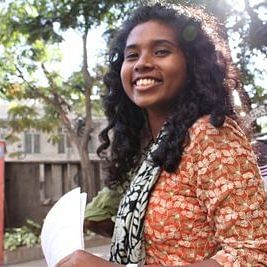
The Delhi Assembly elections 2020 are around the corner and the Bharatiya Janata Party (BJP) is yet to name its chief ministerial candidate. Even as Aam Aadmi Party (AAP) chief Arvind Kejriwal again challenged the saffron party on Wednesday to name its CM face, no name was floated by the party.
With Delhi set to go to the polls on Feb. 8, further delay in naming the CM candidate may hurt the BJP if we look at recent trends in how people vote differently when it comes to the Assembly elections.
Even though BJP President JP Nadda and Home Minister Amit Shah have been aggressively campaigning for the upcoming polls, their efforts may be in vain if Delhi witnesses a ‘split voting’ phenomenon like we saw in Odisha. In the 2019 Lok Sabha Elections in many seats in Odisha, people voted differently while selecting representatives for the Lok Sabha and the state Assembly, according to a Lokniti-CSDS post-poll survey after the May 2019 Lok Sabha elections.
For instance, in the Bhubaneswar Lok Sabha constituency and the seven Assembly segments under it, people voted in the BJP’s favour in the parliament seat while not a single Assembly segment under the Lok Sabha seat voted for the BJP. The six Assembly constituencies — Bhubaneswar-Central, Bhubaneswar-north, Ekamra Bhubaneswar, Jayadev, Khurda and Begunia — favoured the BJD, one seat, Jatni, elected a Congress nominee.
ALSO READ — Delhi Elections 2020: A litmus test for the BJP
The phenomenon, which was witnessed in Odisha, hints that ‘intelligent’ voters tend to vote for their regional party leaders when it comes to Assembly elections and national party leaders when it comes to the Lok Sabha elections. If a similar phenomenon is witnessed in Delhi, the BJP may have to pay the price for its delay in naming the CM candidate.
Earlier, Shah had made a statement that had suggested that the BJP would fight the polls without a CM face, but with the popularity of Prime Minister Narendra Modi. Even if the state doesn’t witness ‘split voting’ and the party decides to go through with this plan, new trends still raise concerns for the BJP and its performance in the upcoming elections.
The Lokniti-CSDS post-poll survey after the May 2019 Lok Sabha elections revealed that out of 56.5 percent voters who voted for the BJP in the Lok Sabha, 24 percent had the Aam Aadmi Party (AAP) on their minds for the Assembly elections. Recently conducted opinion polls have predicted a return to power for the Arvind Kejriwal-led AAP by bagging 54-60 out of the 70 seats in the Delhi Assembly elections.
Whether the BJP succeeds in winning the Delhi Assembly elections on the back of Prime Minister Modi will be seen on Feb. 11, when the counting will take place.
